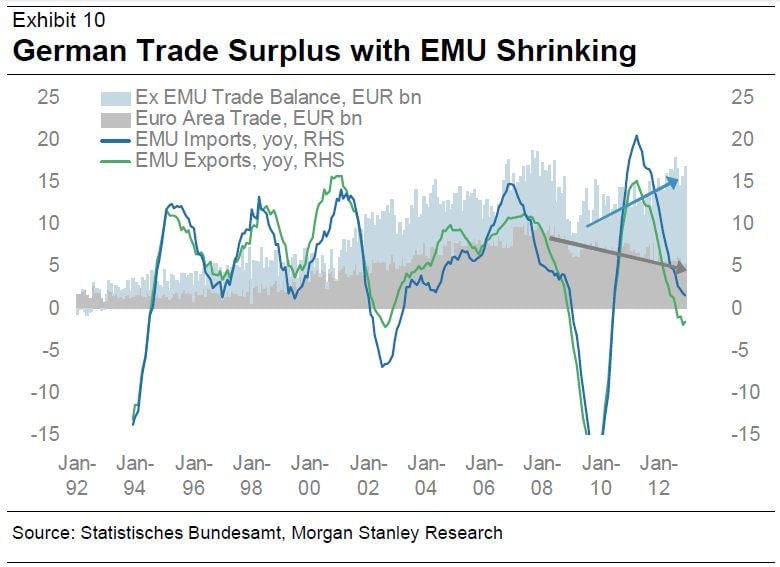One overlooked reason that Germany has avoided the worst of the euro crisis
Germany has been the continuing bright spot in an otherwise dim euro zone economic outlook. As my colleague Matt Phillips pointed out last week, however, there are signs that the German economy is flagging: German industrial production was down by 1.3% in January from the year before. That’s little surprise, since 57% of Germany’s exports go to other states in the European Union.

Germany has been the continuing bright spot in an otherwise dim euro zone economic outlook. As my colleague Matt Phillips pointed out last week, however, there are signs that the German economy is flagging: German industrial production was down by 1.3% in January from the year before. That’s little surprise, since 57% of Germany’s exports go to other states in the European Union.
Indeed, the question really is: How has Germany been able to avoid a worse downturn for so long? Morgan Stanley’s Elga Bartsch explains that the global economy has kept the German export machine alive, even as sinking consumer demand in Europe erodes at much of German manufacturers’ business:
Germany seems to be benefitting [sic] more than we previously acknowledged from the global economic recovery and its strong competitive position overseas. Looking at the breakdown of the German trade balance surplus shows that Germany’s export success largely comes from trade with countries outside the euro area.

German manufacturers’ ability to win customers from across the globe is much of the reason Bartsch thinks the country will actually grow by 0.5% in 2013, even amid a sluggish global economic recovery. In any case, the recent decline in demand from elsewhere in the European monetary union is something Germany might want to get accustomed to.